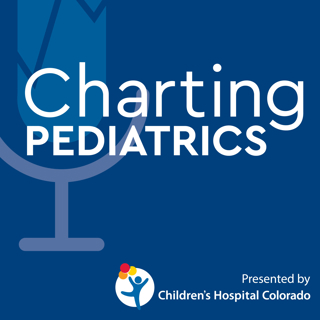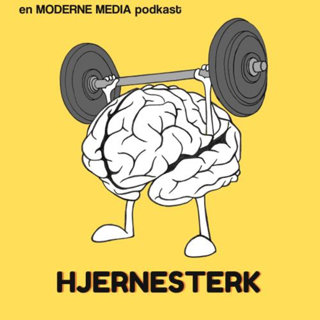
Painful Periods Aren’t Normal
The menstrual cycle is as regular as clockwork, or at least it should be. But for many adolescent patients, what should be a manageable monthly event turns into a full-blown disruptor of school, sports, sleep and sanity. As we explore the world of adolescent gynecology, we take a closer look at the intricate details: how cramps can hide endometriosis and ‘normal’ isn’t always what it seems. These symptoms are not just part of puberty. These are signals that deserve attention, validation, and thorough evaluation. This episode was recorded live on the exhibit floor at the 2025 Pediatric Academic Societies Conference in Honolulu, Hawaii. Joining us for this episode is Elizabeth Alderman, MD, Chief of the Division of Adolescent Medicine at The Children’s Hospital at Montefiore. She is also a professor at the Albert Einstein College of Medicine. Some highlights from this episode include: First-line treatments for painful periods in adolescents Red flags in menstrual history that could lead to further concerns Primary care diagnostic steps before referring to gynecology How to create a comfortable environment for discussing these uncomfortable topics for adolescents Charting Pediatrics is in the running for a People’s Choice Podcast Award, and we need your help to get nominated! Starting July 1, you can head to www.podcastawards.com and nominate us for the “science and medicine” category, as well as the “people’s choice” category. Listeners like you are the reason we have become one of the top pediatric podcasts for providers around the world. Your nomination could make all the difference in us receiving this recognition! Nominate us by July 31st and help Children’s Hospital Colorado lead the way in pediatric podcasting. Thank you for your support! For more information on Children’s Colorado, visit: childrenscolorado.org.
15 Jul 29min

Detecting Hip Dysplasia
Screening for hip dysplasia in infants can make a big difference in their outcomes. Still, we know there are kids that fall through the cracks and later present with pain. Early detection of this condition is critical from a developmental standpoint, and proper therapy can guide those patients towards a pain free and active life. To help us uncover all we need to know about hip dysplasia, we are joined by Erika Valentine, MD. She is a pediatric orthopedist at Children’s Colorado and is an Assistant Professor at the University of Colorado School of Medicine. Some highlights from this episode include: Signs to look out for in the first few years of life Why and how long-term issues can occur Understanding treatment options How primary care providers can support and manage their patients with hip dysplasia Charting Pediatrics is in the running for a People’s Choice Podcast Award, and we need your help to get nominated! Starting July 1, you can head to www.podcastawards.com and nominate us for the “science and medicine” category, as well as the “people’s choice” category. Listeners like you are the reason we have become one of the top pediatric podcasts for providers around the world. Your nomination could make all the difference in us receiving this recognition! Nominate us by July 31st and help Children’s Hospital Colorado lead the way in pediatric podcasting. Thank you for your support! For more information on Children’s Colorado, visit: childrenscolorado.org.
8 Jul 24min

ADHD in the Everyday
Parents often turn to their child’s primary care physician for guidance on illnesses, developmental delays, or other health concerns. ADHD is no exception. In this episode, we’re diving into the crucial role pediatricians play in recognizing and managing ADHD. We’re giving you real-world tools to support real-world kids. This episode was recorded on the exhibit floor at the 2025 Pediatric Academic Societies Conference in Honolulu, Hawaii. Joining us for this episode is Jennifer Walton, MD, the Section Chief of Developmental Behavioral Pediatrics, and an Associate Professor of Clinical Pediatrics at the University of Miami Miler School of Medicine. Some highlights from this episode include: The most common signs of ADHD that get overlooked Differentiating between ADHD and other behavioral or mental health concerns How to use a standardized rating scale to assess ADHD symptoms Talking to families about starting medication Charting Pediatrics is in the running for a People’s Choice Podcast Award, and we need your help to get nominated! Starting July 1, you can head to www.podcastawards.com and nominate us for the "science and medicine” category as well as the "people's choice" category. Listeners like you are the reason we have become one of the top pediatric podcasts for providers around the world. Your nomination could make all the difference in us receiving this recognition! Nominate us by July 31st and help Children’s Hospital Colorado lead the way in pediatric podcasting. Thank you for your support! For more information on Children’s Colorado, visit: childrenscolorado.org.
1 Jul 34min

Kidney Care 101
Some topics in pediatrics are flashy — like seizures, mystery rashes and fevers. While those often make headlines, others, like pediatric nephrology, are a routine but critical part of daily practice. Understanding these bread-and-butter issues is essential to diagnosing so many patients. Protein in the urine, blood pressure creeping up or a UTI that is more than ‘just a UTI’ are often signs that something may be wrong with the kidneys. In this episode, we examine those practical essentials and learn how PCPs can feel confident in managing these diagnoses. This episode was recorded on the exhibit floor of the 2025 Pediatric Academic Societies Conference in Honolulu, Hawaii. Joining us for this episode are Bradley Warady, MD, and Nathan Bines, MD, both from Children’s Mercy Kansas City and the University of Missouri-Kansas City School of Medicine. Dr. Warady is the Director of the Division of Nephrology, a Professor of Pediatrics and the McLaughlin Family Endowed Chair in Nephrology. Dr. Beins is the Associate Program Director for the Pediatric Nephrology Fellowship Training Program, as well as a Clinical Associate Professor of Pediatrics. Some highlights from this episode include: Understanding the core kidney issues in general pediatrics How to identify these conditions early The difference between benign findings and red flags Tools for friendly language about topics that might be sensitive or embarrassing for a child For more information on Children’s Colorado, visit: childrenscolorado.org.
24 Jun 39min

Bloody Diapers and Worried Parents
Picture this: A new parent is changing the diaper of their one-month-old infant when they notice streaks of blood. That’s when panic sets in, followed by frantic calls to the pediatrician’s office. But is this always a cause for alarm? In this episode, our gastroenterologists are on the case. We’re talking about allergic proctitis in infants. They will help you recognize and manage this common newborn issue so you can support families. Joining us for this episode is Mason Nistel, MD. He specializes in gastroenterology at Children’s Hospital Colorado and is an Assistant Professor of pediatric GI, hepatology and nutrition at the University of Colorado School of Medicine. Some highlights from this episode include: How a typical case of allergic proctitis presents Key differences between problematic blood and ‘normal’ blood in the stool The importance of tapping into empathy as this can be a scary experience for parents Additional considerations for primary care providers when evaluating blood in stool For more information on Children’s Colorado, visit: childrenscolorado.org.
17 Jun 23min

Behind Their Behavior
Every kid is unique with their own distinct personality and behavior. But at what point should a child’s behavior become a cause for concern? From anxiety and tantrums to challenges at school and issues with sleep, pediatricians frequently encounter a wide range of behavioral concerns. This episode was recorded at the 2025 Pediatric Academic Societies Conference in Honolulu, Hawaii. In this episode of Charting Pediatrics, we are joined by Stephanie Weber, PsyD, a licensed clinical psychologist at Cincinnati Children’s Hospital who specializes in working with children with behavioral concerns. Dr. Weber is the Associate Director of the Cincinnatti Leadership Education in Neurodevelopmental and Related Disabilities (LEND) Program and an Associate Professor at the University of Cincinnatti. Some highlights from this episode include: Utilizing the right language to get a full picture of a patient’s behavioral concerns Deciphering between “regular” and “irregular” Opportunities for modeling How pediatricians can work with families whose strategies they don’t agree with For more information on Children’s Colorado, visit: childrenscolorado.org.
10 Jun 27min

The Current Pediatric Pipeline Problem
Pediatricians are superheroes in scrubs, baby whisperers, teen translators and guardians of growing minds and bodies. But even heroes need reinforcements. The pediatric workforce crisis has made a prominent impact on the healthcare community including staff shortages, jam-packed schedules, long wait times, frustrated patient families and fewer new doctors joining the ranks. In this episode, we examine what’s really going on. If we understand what's driving the shortage and discuss what we can do about it, we can begin to create change. This episode was recorded at the 2025 Pediatric Academic Societies Conference in Honolulu, Hawaii. Joseph St. Geme, MD, is the Chair of the Department of Pediatrics and the Physician in Chief at Children’s Hospital of Philadelphia. Some highlights from this episode include: Breaking down the current crisis and why it’s different than any other point in pediatrics history What doctors, practices and specialties are most impacted How this crisis could negatively affect quality, continuity of care and outcomes for kids Steps pediatricians can take to help shift this moment For more information on Children’s Colorado, visit: childrenscolorado.org.
3 Jun 29min

Long-Term Care for Adult Congenital Heart Disease
As medical and surgical treatment of congenital heart lesions improve, the vast majority of babies born with heart problems are living long and productive lives. While it is remarkable, it also brings new challenges for their care, especially during the critical transition to adulthood. A new medical specialty has developed to address this specific need, driven by the growing demand for expertise in the lifelong care of patients with congenital heart lesions. To unpack this topic, we are joined by Roni Jacobsen, MD. She is the Medical Director of our Adult Congenital Heart Disease Program at Children’s Hospital Colorado. We have one of the largest programs in the country with exceptional outcomes, treating patients with congenital heart problems that continue into adulthood. Dr. Jacobsen specializes in internal medicine as well as pediatrics and is trained in pediatric cardiology and adult congenital heart disease. She is an Associate Professor of Pediatrics at the University of Colorado School of Medicine. Some highlights from this episode include: Defining adult congenital heart disease and understanding its differences from other heart diseases Why so many patients don’t understand their disease Understanding the advancements in treatments The role that pediatricians play in steering families towards continued care and proper transition once that child hits adulthood For more information on Children’s Colorado, visit: childrenscolorado.org.
27 Mai 28min




















